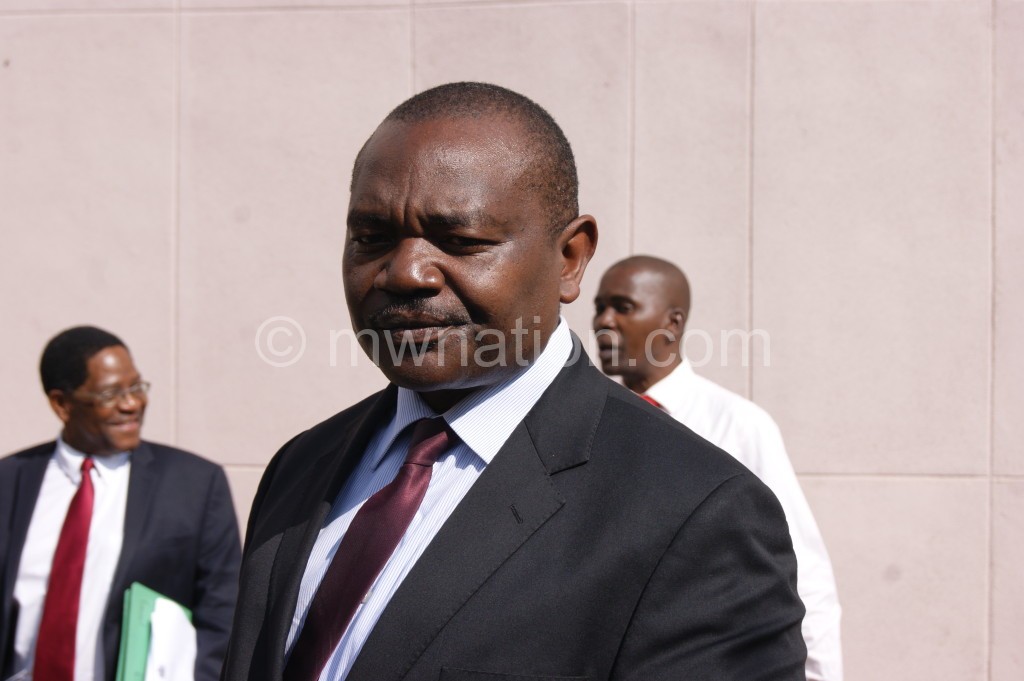Report recommends probe into oil deals
An Oxfam report says former president Joyce Banda’s administration rushed to sign deals with prospective oil exploration companies just eight days before the 2014 Tripartite Elections despite advice against the same. On the other hand, the Peter Mutharika administration has continued to push the deals in secret without guiding policy and an enabling Act, the report has said.
The report presented in Lilongwe yesterday has since called for an investigation into whether there was corruption in the issuing of petroleum licences or production sharing agreements (PSAs).

It also calls for public disclosure of any payments made by companies holding petroleum licences or PSAs, including corporate social responsibility, to any organisation.
Moreover, the report calls on government to disclose the owners—“the natural persons who directly or indirectly ultimately own or control the corporate entity”— of mining and petroleum rights in Malawi as will be required by the Extractive Industries Transparency Initiative (EITI) and the disclosure of the PSA signed with RAK Gas (Blocks 4 and 5) and with Pacific Oil (Block 6).
The report titled ‘Malawi’s Troubled Oil Sector, Licences, Contracts and their Implications’ details the time frame of how the contracts were signed, including some just a few days before Malawians voted for a new President in 2014.
“Government officials were under intense pressure to complete the drafting of the Model PSA during a flurry of meetings in February and March of 2014. A full draft was published on 12 March 2014, though officials believed that this was only 80 percent complete and little work had yet been done to calibrate the fiscal [tax] terms.
“Negotiations with RAK Gas [Block 4 and 5] and Pacific Oil [Block 6] were happening in parallel. Although the rationale remains unclear, pressure was building to finalise the PSAs. The Solicitor General’s office recommended against signing the PSAs in advice provided in March of 2014. Government officials involved in the negotiations also resisted, claiming that more time was needed. At the time, it appeared that caution had prevailed and that the negotiations had been postponed.

“Months later, however, it became clear that the negotiations had been completed, and that PSA contracts for Blocks 4 and 5 with RAK Gas and Block 6 with Pacific had been signed by the then Minister and the Principal Secretary both responsible for mining, just eight days before the elections in May of 2014,” reads part of the report.
Speaking during the official unveiling of the report in Lilongwe, Oxfam country director John Makina said the report makes it clear that serious mistakes were committed in the process of establishing Malawi’s petroleum sector.
“We are looking at the global picture as we seek to end poverty and suffering. Our interest is protecting the vulnerable. A lot of people think that once Malawi starts extracting oil then we are on our way to prosperity. It could be true; it could also not be true. What is key is to manage the process. Analysis on available documents and information raises some serious concerns on whether the country will benefit,” he said.
Canada-based consultant and president of Resources for Development, Don Hubert, described the circumstances of the country’s oil contracts are “highly unusual”. He said the actual terms of the contracts as “too generous to the investor.”
He further criticised the secrecy behind the deals, adding that government should also reveal the owners and shareholders of those companies involved.
Former director of mining in the Ministry of Natural Resources, Energy and Mining Charles Kaphwiyo claimed that senior government officials in the civil service were not consulted when government signed the agreements.
Responding on behalf of government, coordinator of Petroleum Desk in the Ministry of Natural Resources, Energy and Mining Calsius Chibambo said government has already noted some of the concerns and is renegotiating the production sharing agreements.
He also said government have so far held preliminary talks to amend some of the controversial clauses in the contracts, including improving the royalty government will receive from the companies from five percent to 10 percent.
In an interview on Saturday, Attorney General Kalekeni Kaphale said he was yet to access the report. However, when quizzed whether he will be willing to order a criminal investigation on whether corruption prevailed in the deals, he said once he was officially approached on the matter, he will review facts of the report..






is there a link to this report available?
Treat carefully with such reports. As much as all should be above board, organisations such as Oxfam have their own agenda. Wasteful donor’s money. The West will do anything to derail progress in Africa. Neocolonialism at its best.